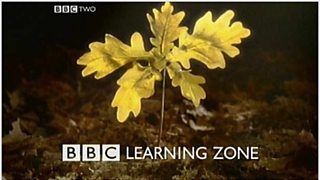Five years ago many thought that Schools Television was finished. After all, schools no longer had televisions – and the ritual of herding a whole class into the hall for an appointment with was over. The interactive white board had become ubiquitous in classrooms across the country – and the internet was coming into its own. It was all about games, snappy clips and interactive quizzes. The whole notion of Schools Television was starting to sound a bit dull and old-fashioned.
When took over as the new Controller of �������� Learning in 2010, the time was ripe to examine the ��������’s role in the production of schools television.

The Learning Zone is �������� Two’s overnight service for schools. It transmits between 4am and 6am during term times when teachers can record programmes for use in class.
Learning has always been a key part of the ��������’s central purpose to Inform, Educate and Entertain. �������� Schools broadcasts have often helped to shape what teachers teach, and many programmes produced have been appointments to view. From the early schools radio shows produced by the wonderful Mary Sommerville (the ��������’s first director of School Broadcasting in the 1930s) – to the brilliant drama documentaries in the History Files series, �������� Learning has always been mandated to make a positive contribution to the education of children and young people.
So what should educational broadcasting look like in the 21st century? How should it be different? What kinds of programmes should we be making for the digital age?
When I first came to the ��������, I spoke to numerous teachers and children to get their views. The message was clear: it’s hard to beat a beautifully shot film to kick-start a lesson, and stimulate discussion or activity. Although schools no longer watch programmes on televisions at set times of day – teachers regularly scour the internet for great videos to help explain concepts, introduce different perspectives and to transport pupils beyond the four walls of their classroom – to different periods of history, or remote parts of the globe. Hour-long programmes are rarely used, but anything between 3 and 15 minutes can work well depending on the content, and the context. And whilst programmes clearly need to be linked to the curriculum, or be otherwise relevant to a school audience, above all schools want videos which are:
- Inspirational (helping to excite children about learning, creating and investigating)
- Aspirational (providing role models such as scientists, inventors, writers, athletes – and even other young people who have overcome challenges whether emotional or physical)
- Motivational (demonstrating the real world relevance of what they are learning)
And of course, they are looking for films of the highest possible production standards – even on the web. Children and young people are incredibly media literate. They won’t engage with patronising or sub-standard programmes. If it is really to hit the mark, educational broadcasting arguably has to be better than any other kind of television.
So, when I took over the reins as Executive Producer for the Learning Zone in 2011 – the challenge was clear. The time had come to re-invent schools television to work for a time-shifted, time-pressed, digital age.
The independent production companies and in-house teams that we work with have certainly risen to the challenge.
In the last year, we have commissioned powerful dramas written by Bill Gallagher and Sanjeev Kholi (); the witty starring an extraordinary cast including Rupert Graves and Harry Potter’s Jeff Rawle; and an innovative and beautifully shot series, , which linked to the website of the same name, which is a partnership between the �������� and Public Catalogue Foundation.
This week, for the first time ever, �������� Learning Zone has secured every nomination for Learning Primary and Learning Secondary in the Children’s BAFTAs. And competition was fierce amongst the 50 Learning Zone programmes produced this year alone.
's two winning Learning programmes of this year’s Children’s BAFTAs were and Seeking Refuge which you can view below.
Seeking Refuge - The story of ten-year-old Ali from Afghanistan, who fled the country with his grandmother.
You can also record Learning Zone programmes between 4am and 6am on weekday mornings on �������� Two, view them online on , or find clips of them on the website – where they will be available online for the next five years.
We welcome all feedback!
Katy Jones is Executive Producer for �������� Learning
Detailed schedule information can be found on ������ .
